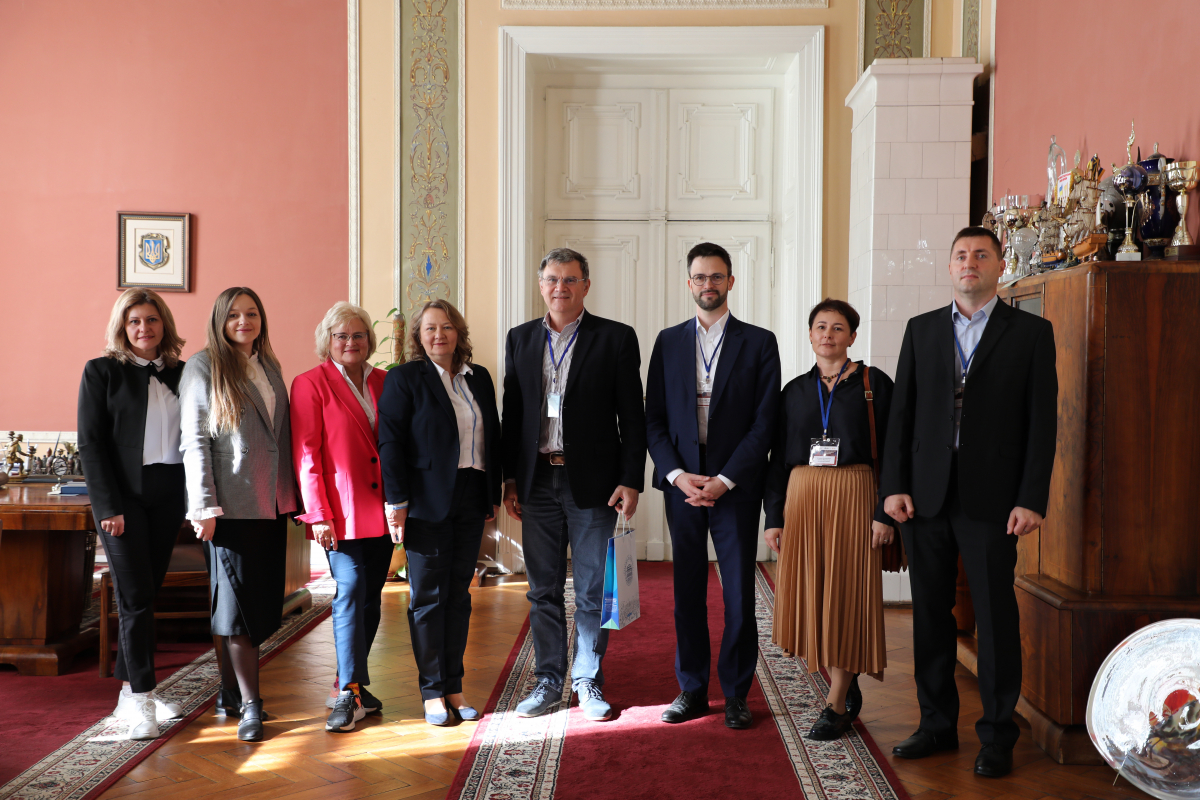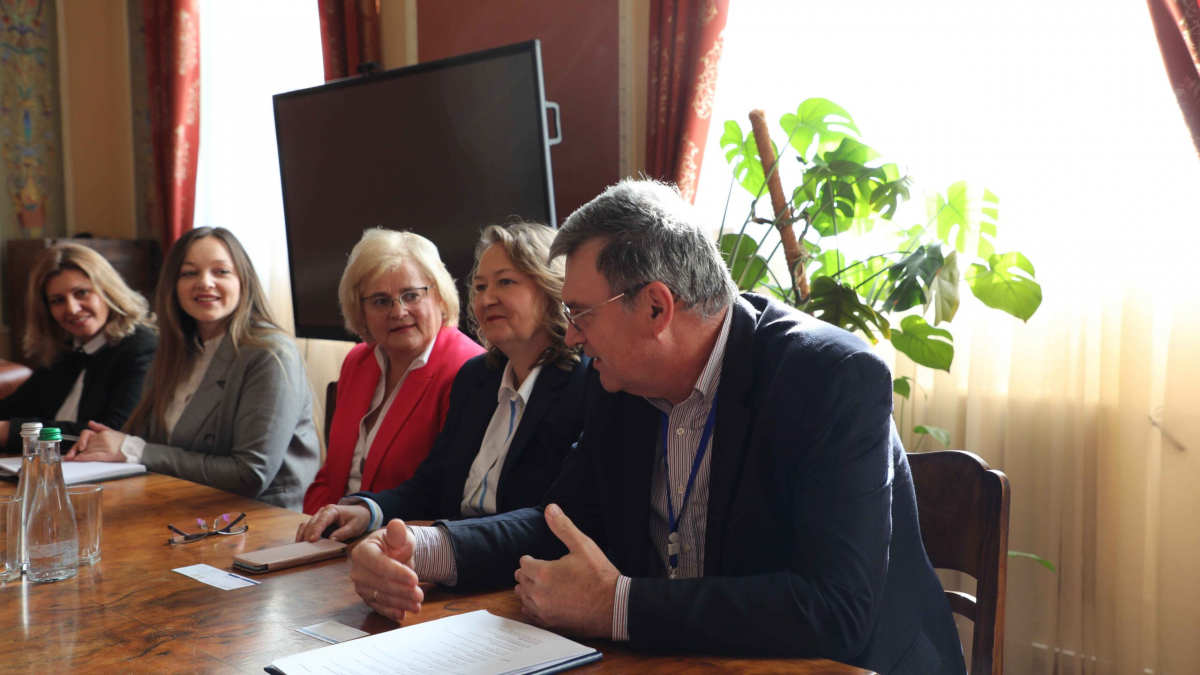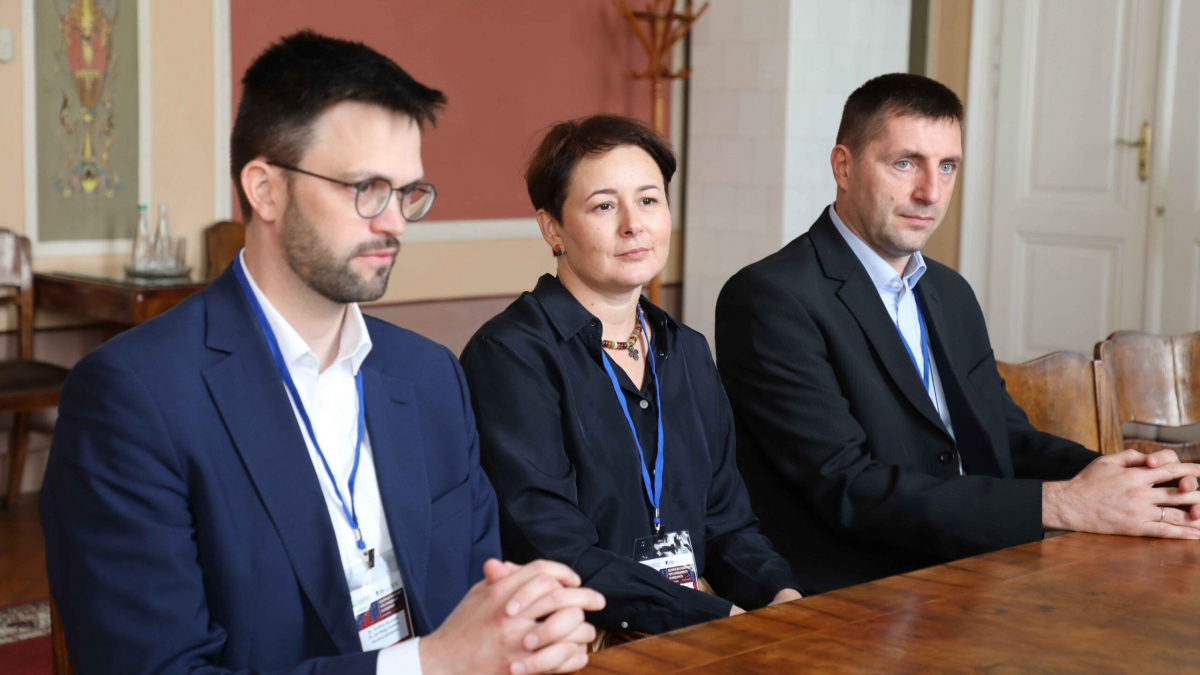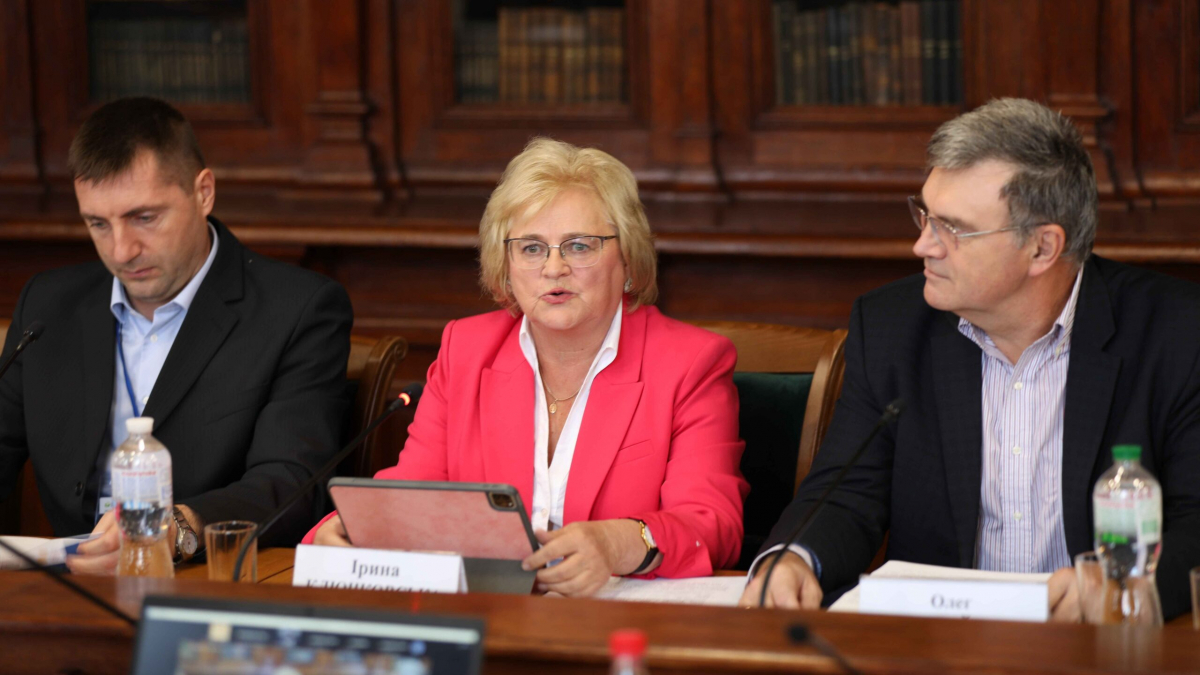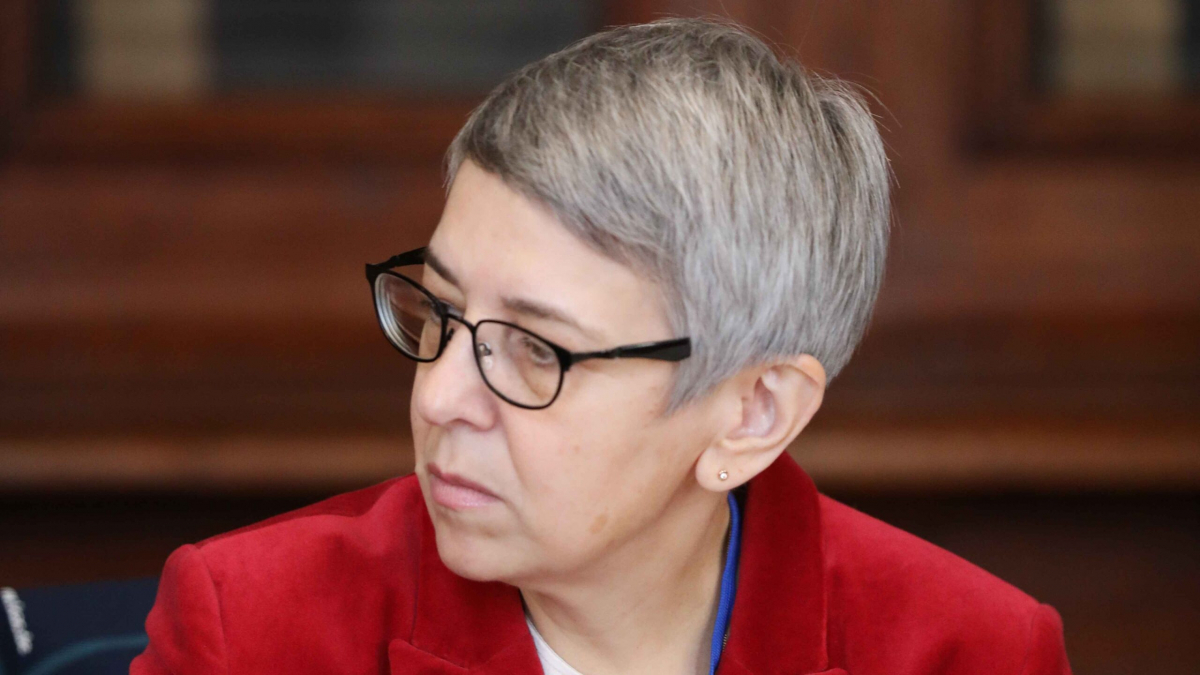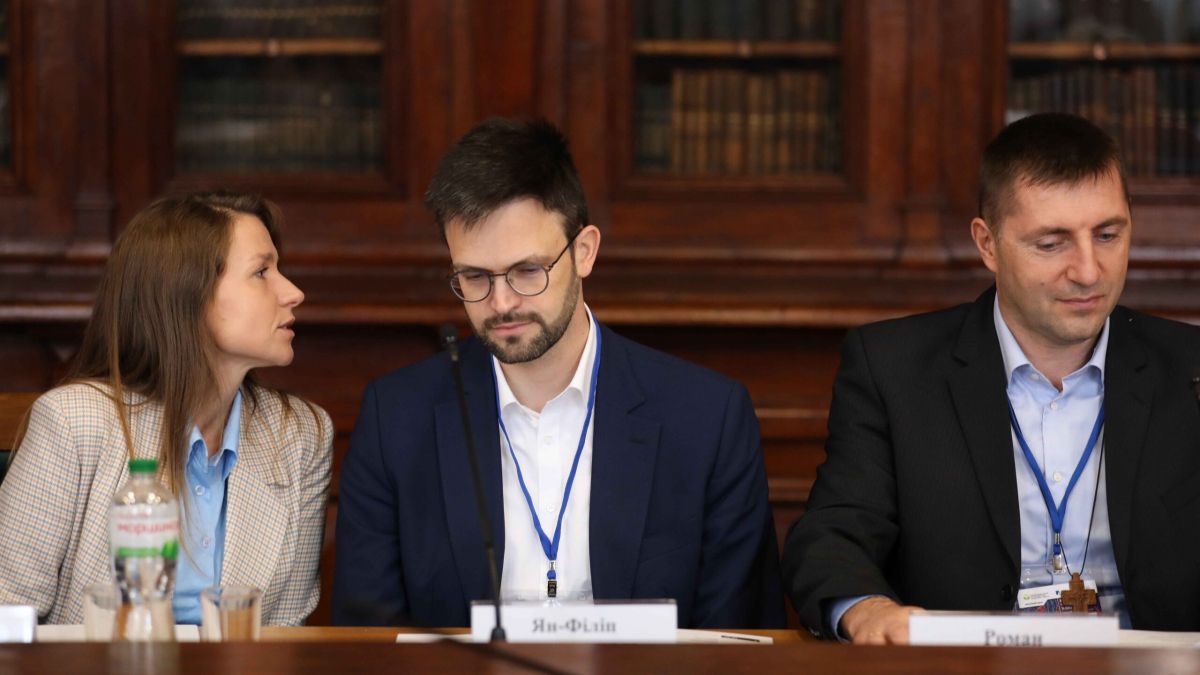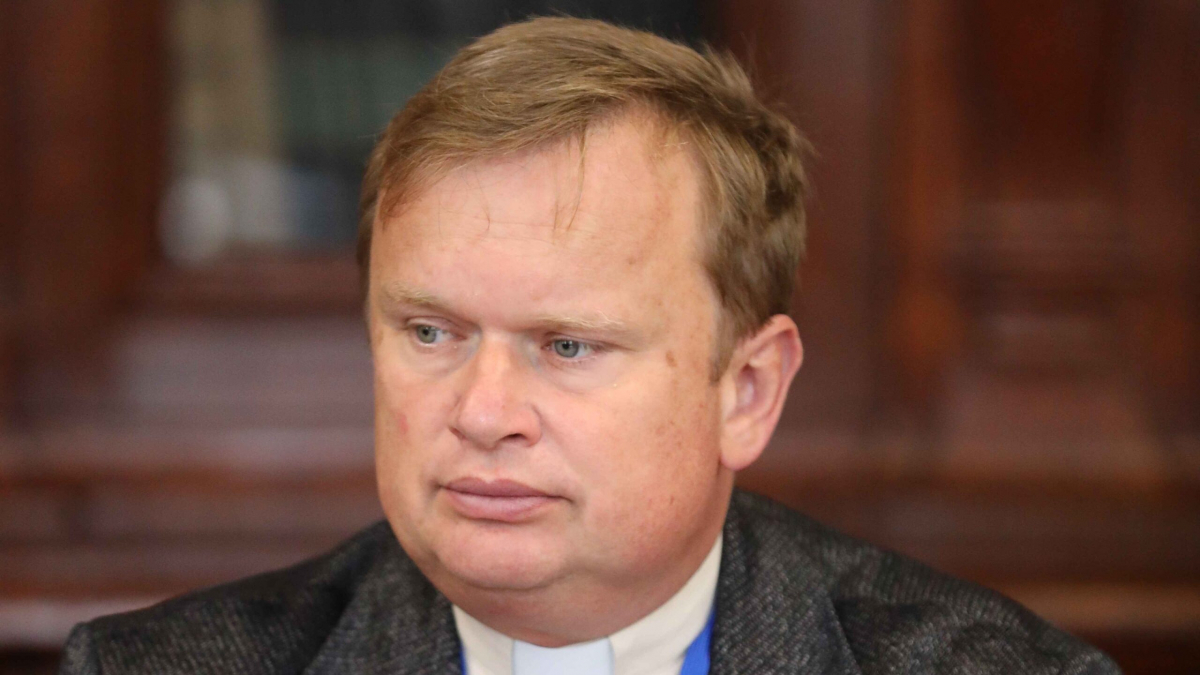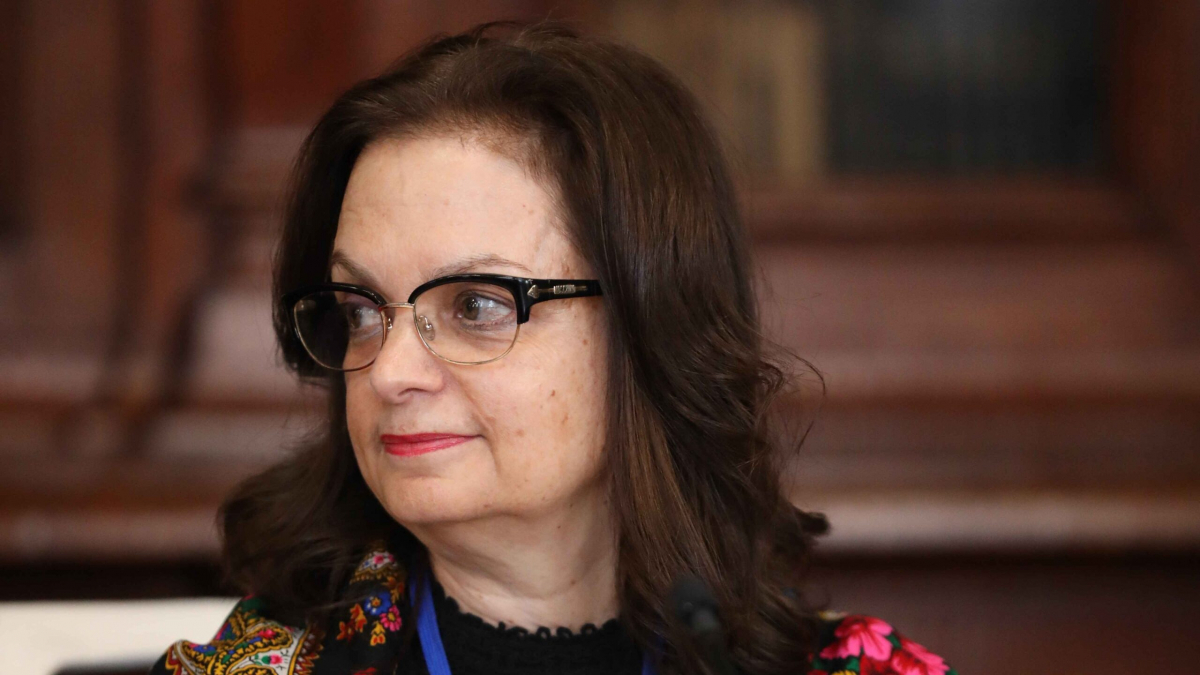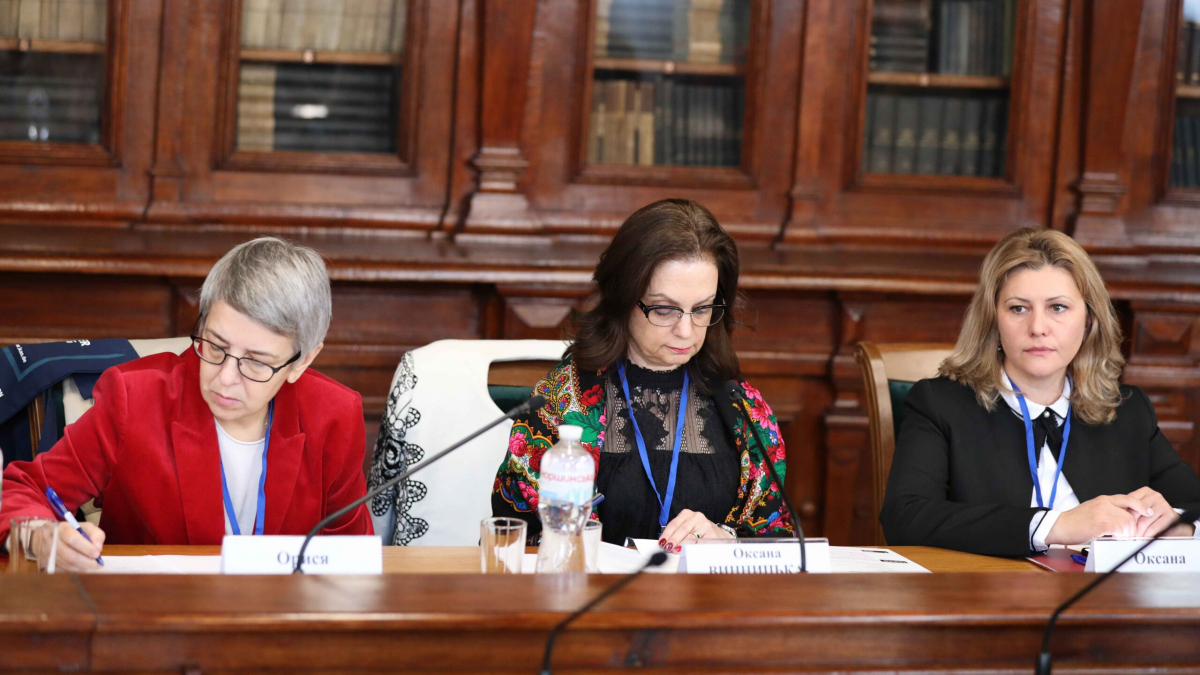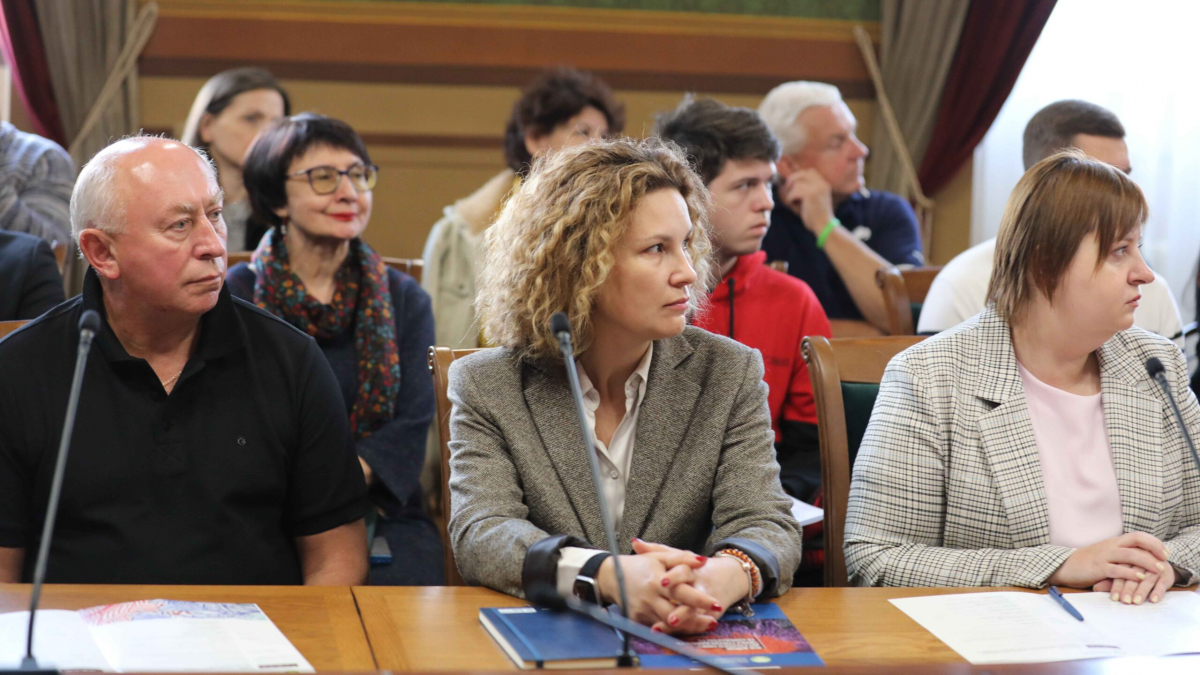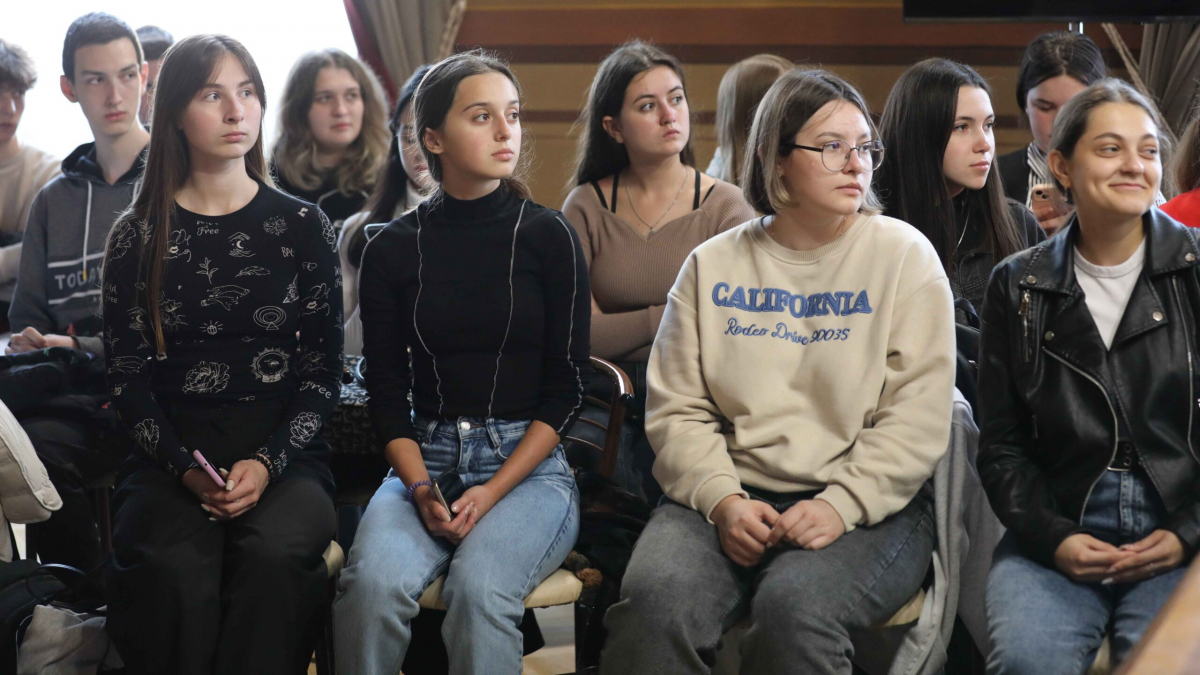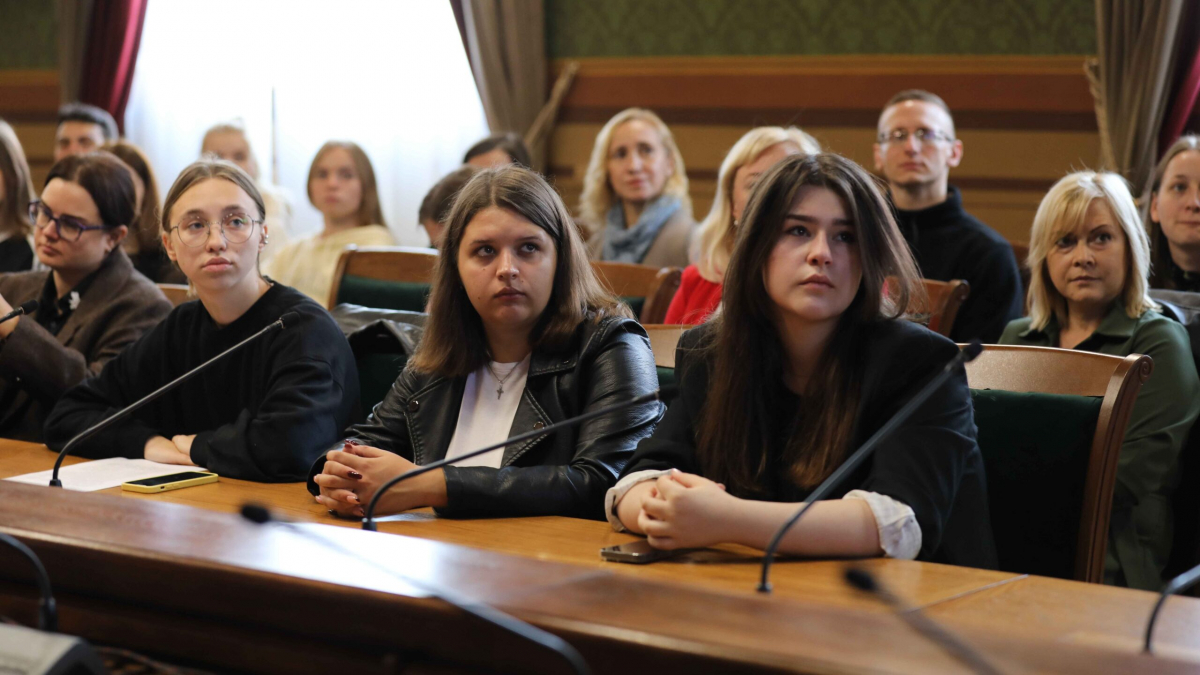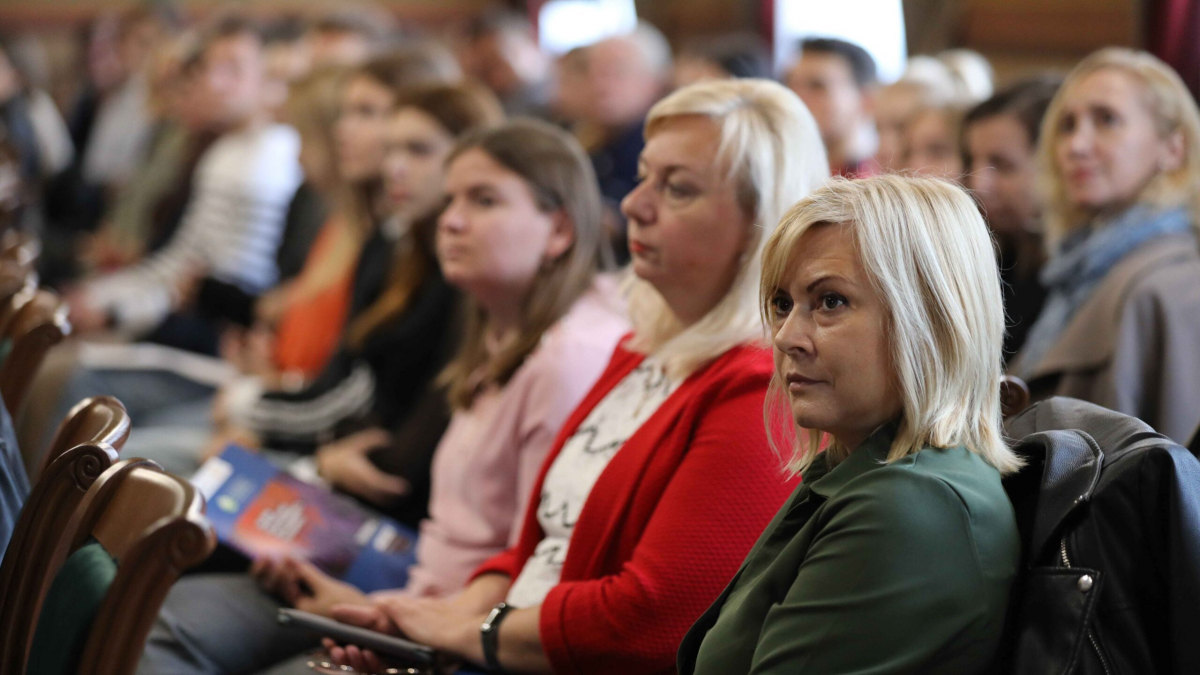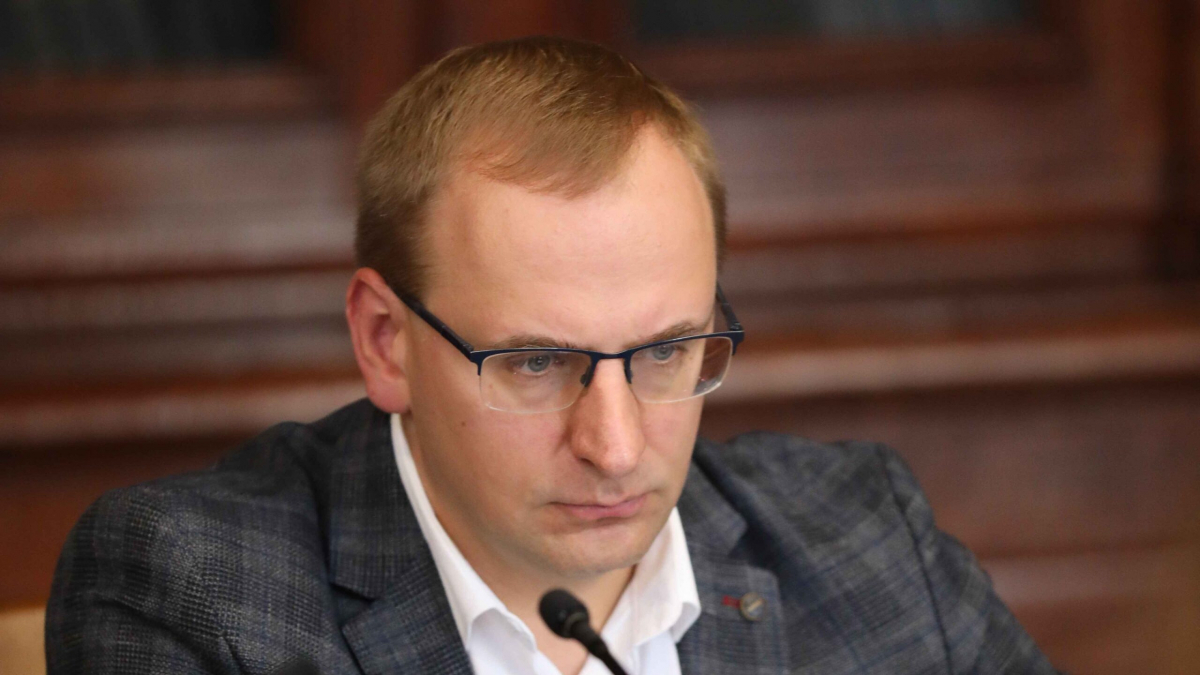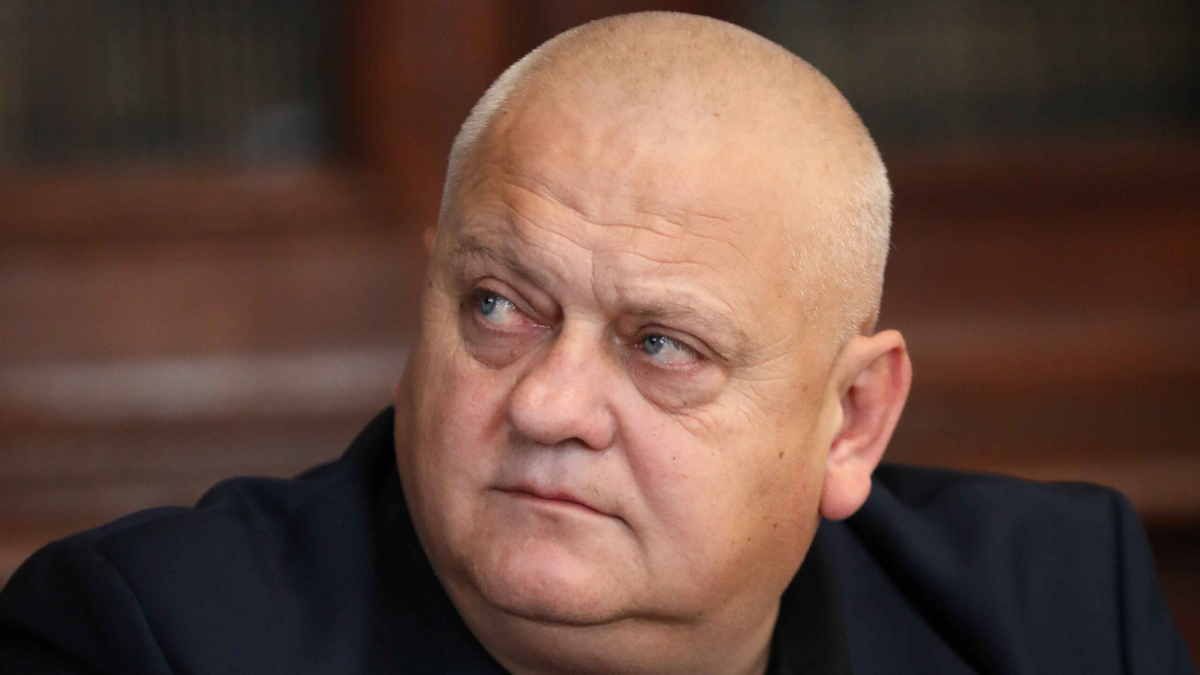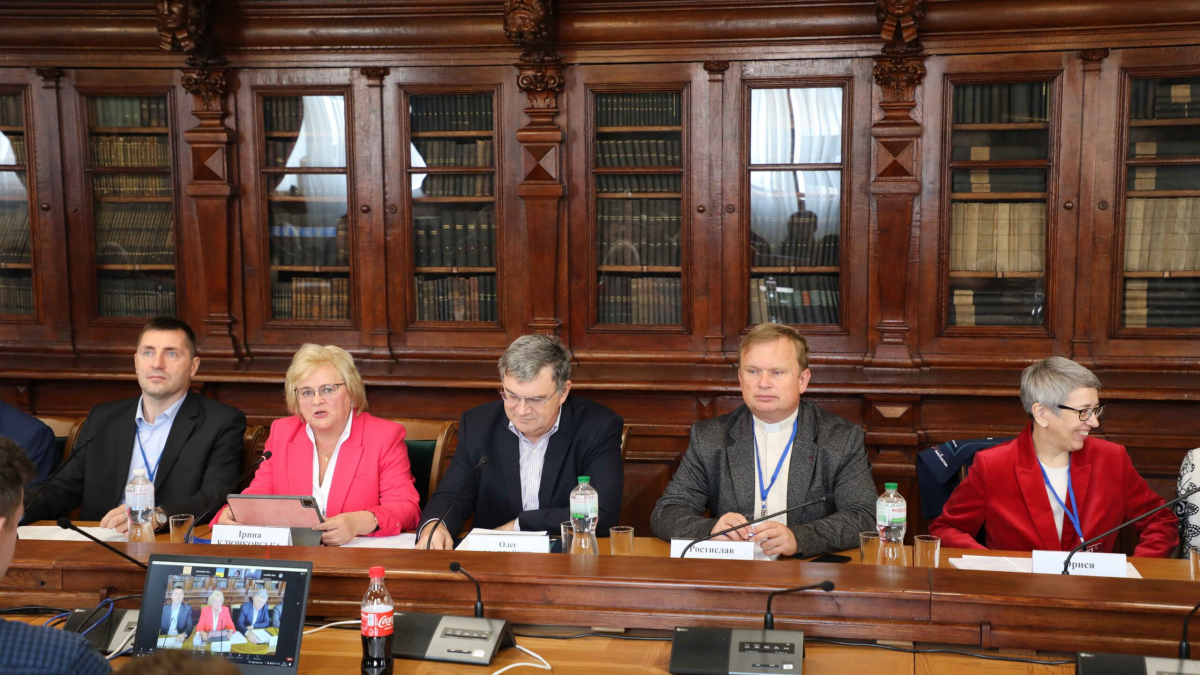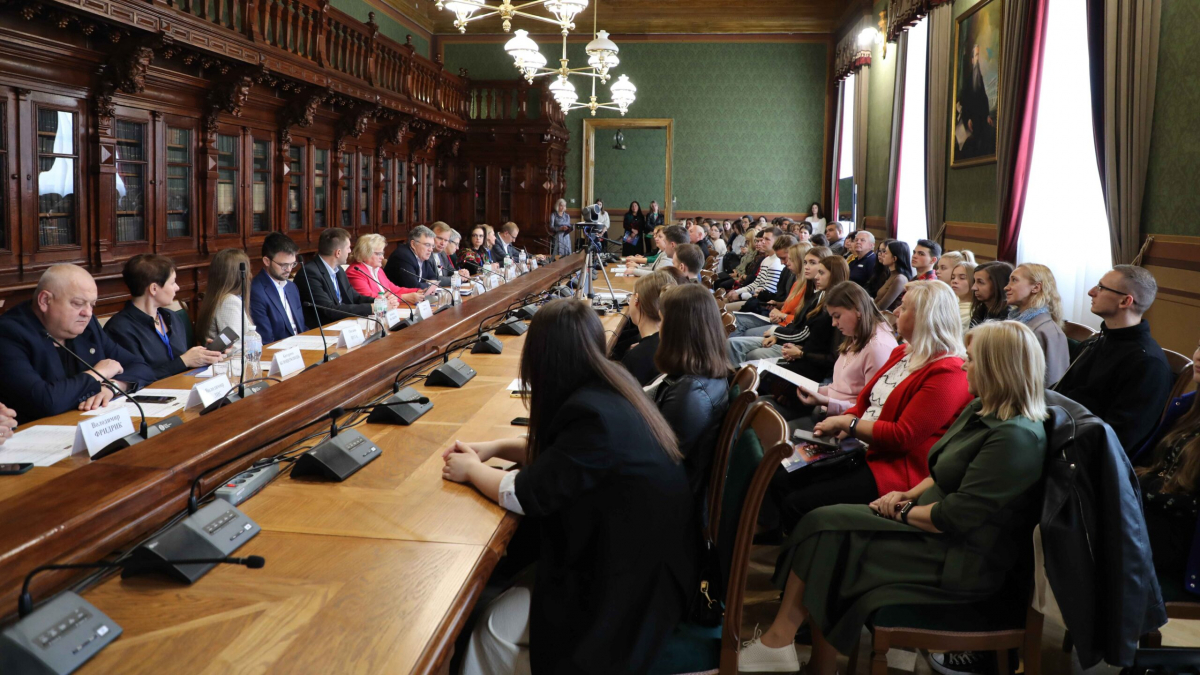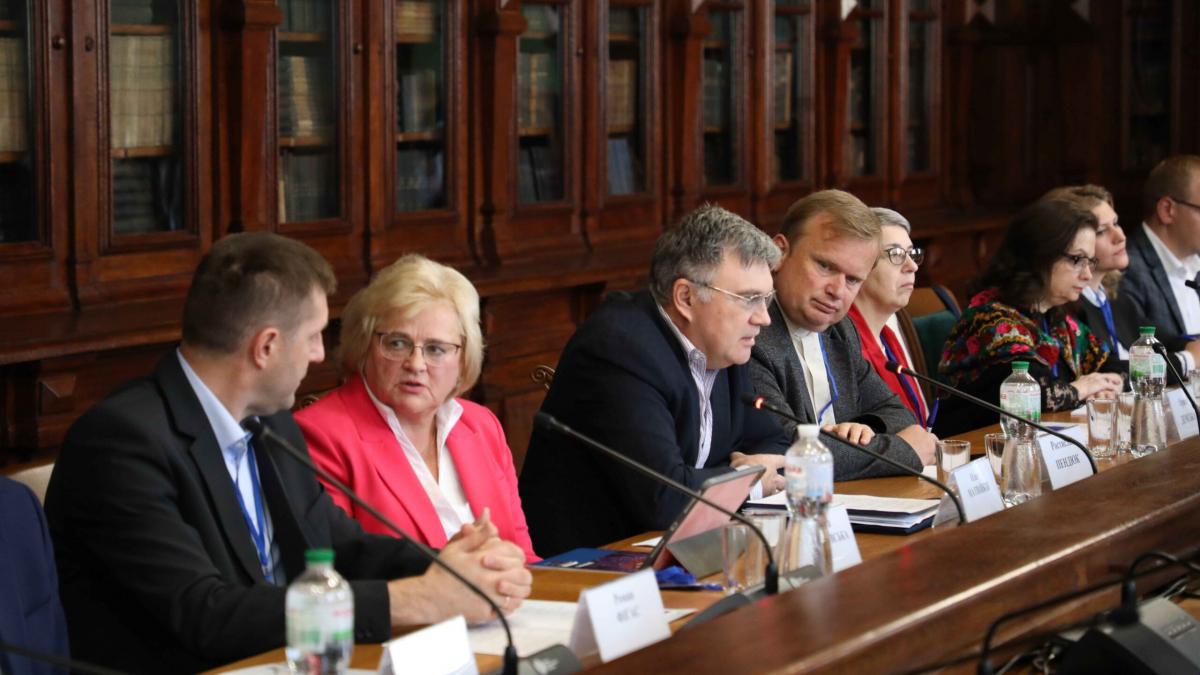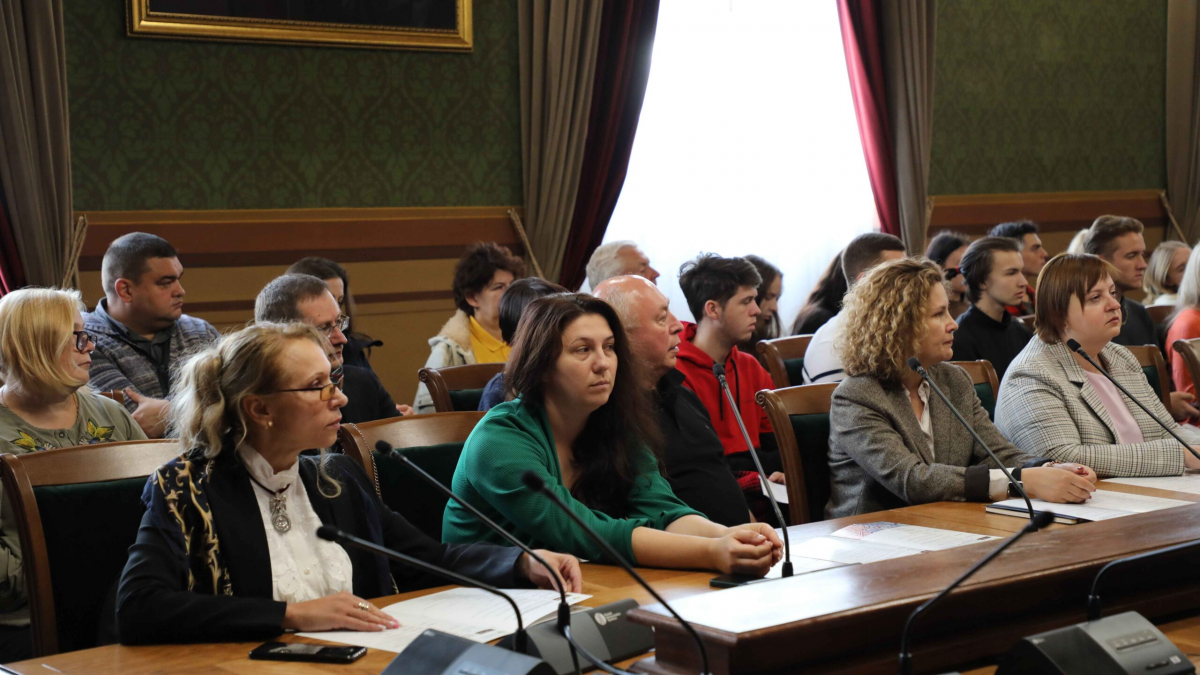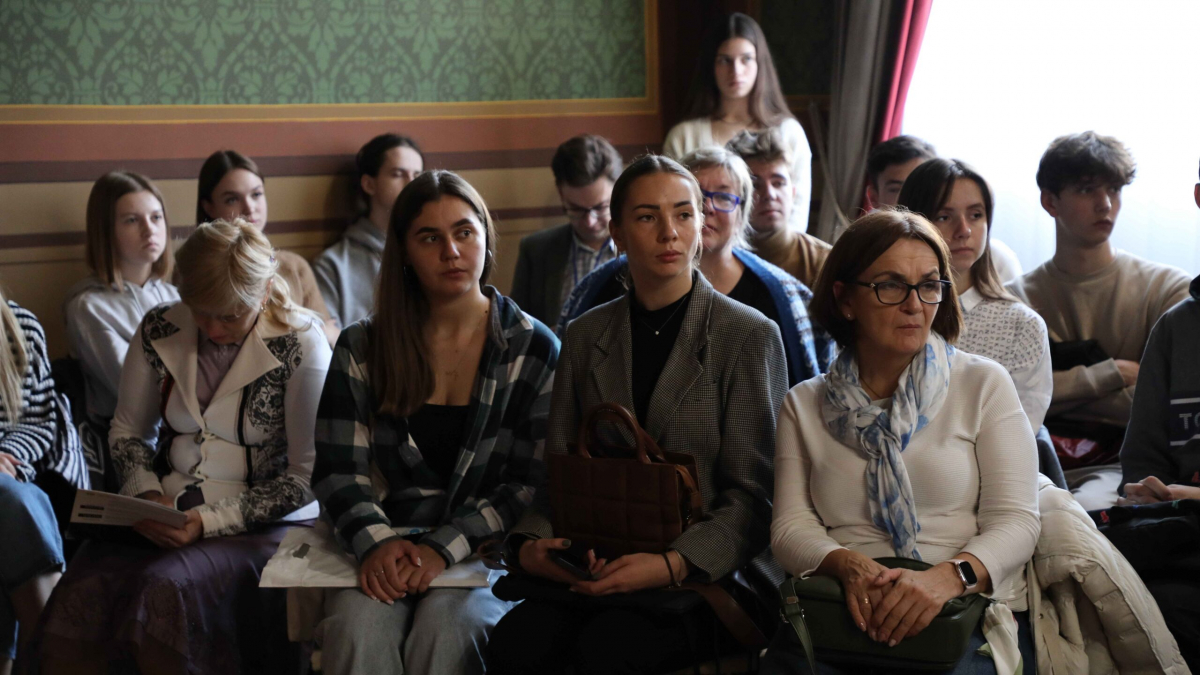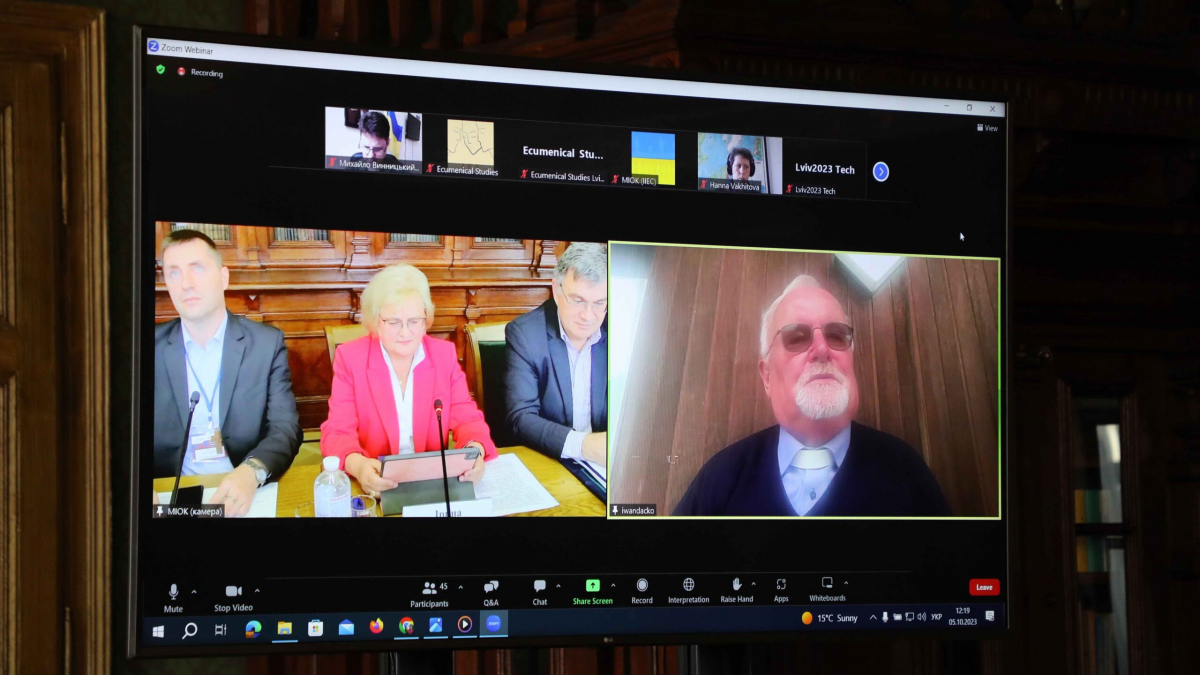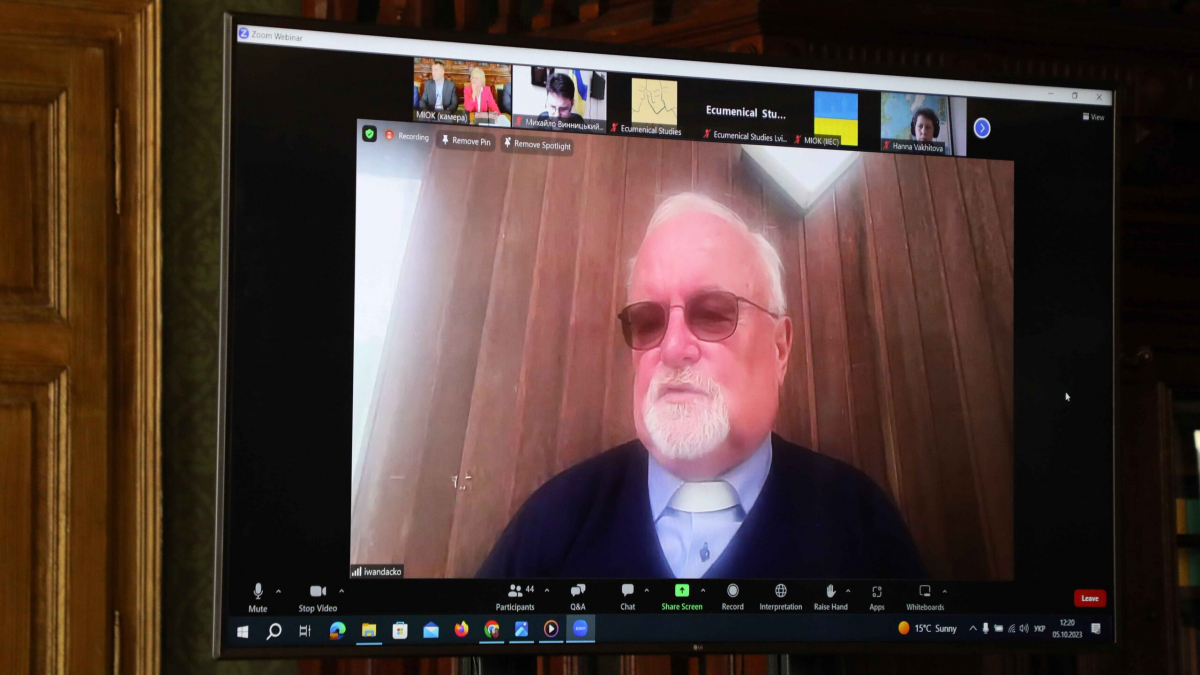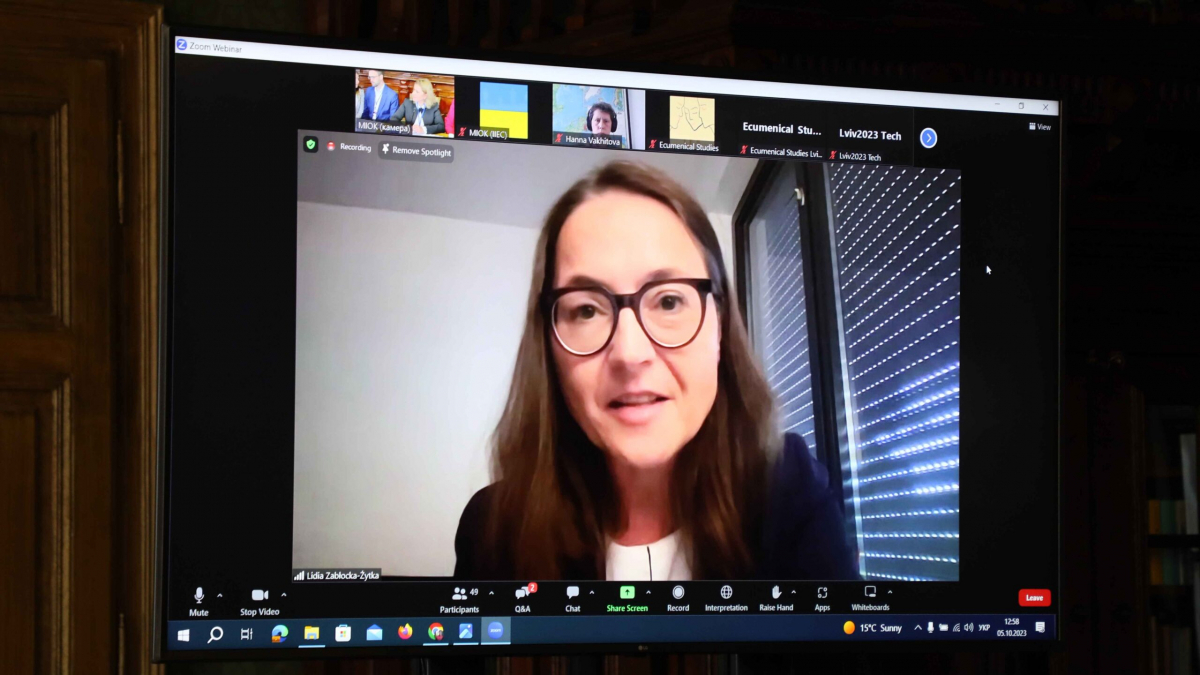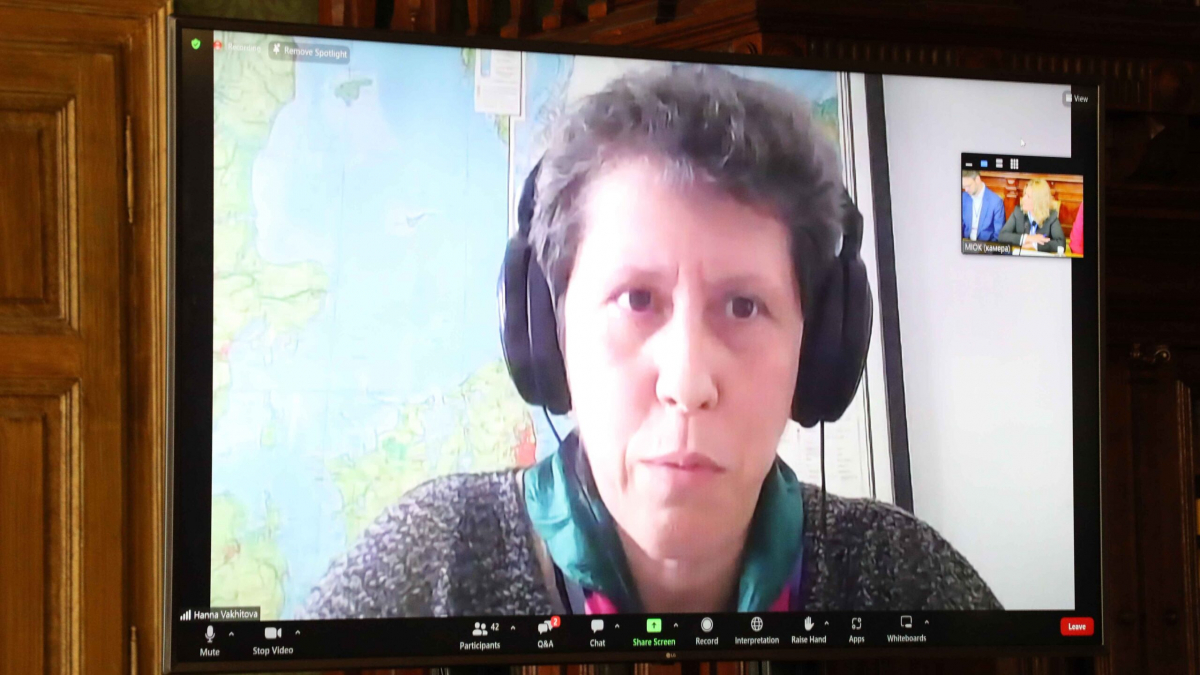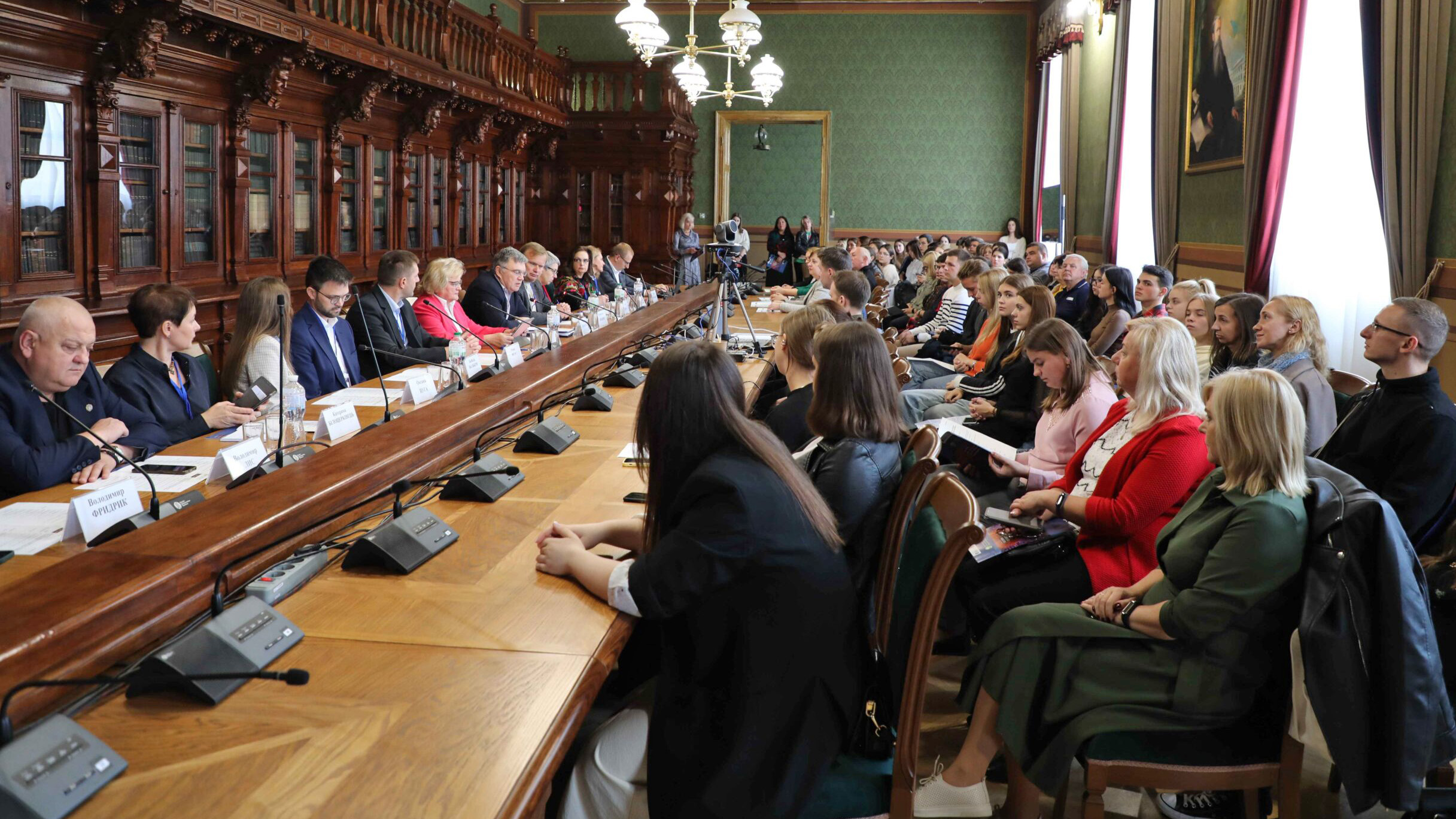On October 5, 2023, the discussion «Children and youth during forced military emigration: how not to lose, how to preserve?» The event was opened by Fr. Dr. Roman Figas, Dr. Jan-Philipp Wolbern, Fr. Dr. Ivan Datsko, Mykhailo Vynnytskyi, and Doctor of Technical Sciences Oleh Matviikiv. Father Rostyslav Pendiuk, Dr. Orysia Demska, Dr. Lidia Zablotska-Zhytka, Dr. Oksana Wynnyckyj-Yusypovych, and Dr. Hanna Vakhitova also took part in the discussion. The event was moderated by Iryna Kliuchkovska, Candidate of Pedagogical Sciences, Director of the International Institute of Education, Culture and Diaspora Relations and Oksana Piatkovska, Doctor of Economic Sciences, Deputy Director.
Before the beginning of the panel discussion, Oleh Matviikiv, the First Vice-Rector of the Lviv Polytechnic National University, met with the partners of the Ecumenical Social Week: Fr. Roman Figas, Director of the Institute of Ecumenical Studies of the Ukrainian Catholic University, Jan Philipp Wolbern, Deputy Director of the Konrad Adenauer Stiftung Ukraine, and Kateryna Bilotserkivets, project manager of the Konrad Adenauer Stiftung Ukraine. Representatives of the International Institute of Education, Culture and Diaspora Relations – Iryna Kliuchkovska and Oksana Piatkovska, as well as Nataliia Hots, Head of the Center for International Education, Lviv Polytechnic, also took part in the meeting.
Moderator of the event was Iryna Kliuchkovska. She started the event with a call to reflect on the concept of sustainable peace - the key theme of this year's Ecumenical Social Week and, at the same time, a goal that Ukrainians should strive for. Who should build peace after the end of the war? It is obvious that the youth, but which youth exactly - the one who is currently in Ukraine; the one who is now abroad, or is this a task for all young Ukrainians? Last year, IECDR founded the discussion platform "Ukrainian Forced Migrants: Integration, Identity, and Return", which is designed to unite Ukrainians, forced to leave the country due to the invasion of Russia. Children and youth are part of this migrant community. Therefore, today more than ever, it is expedient to continue the dialogue, focusing on the work with young people.
During this meeting, the participants exchanged their opinions and discussed areas of potential cooperation. The conversation continued in the Zachariewicz Hall during the panel discussion.
Photos by Nataliia Pavlyshyn, of Lviv Polytechnic Center for Communication
